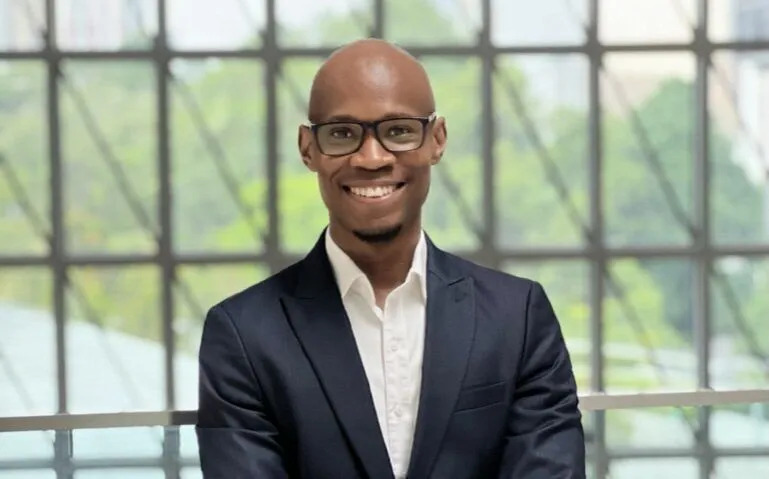When you think of a Master of Business Administration (MBA), it often conjures the big rewards in store for those who use it to climb to the highest ranks of the world’s most profitable companies.
The up to 100% salary boost and easier access to a network of the world’s movers and shakers come to mind too, but that barely scratches the surface of the benefits of an MBA.
Earning an MBA gives you the knowledge you need to take command of the wider world and not solely, as many assume, to become a profit-driven leader.
The skills and learnings you gain from an MBA can be applied anywhere, even in non-profit and philanthropic organisations — like Kennedy Baboloki Kwati discovered.
A journey of social impact
Born and bred in Botswana, Kwati knew he’d be pursuing an MBA once he completed his Bachelor of Business Administration at the University of Botswana.
Like most, he looked to the West, where many of the world’s most prestigious MBAs are located, but status alone wasn’t what Kwati was looking for.
Kwati worked with Youth Impact, a non-governmental organisation (NGO) that scales evidence-based programmes in health and education, for most of his undergraduate years.
He was roped into the Operations and Development Officer role for this newly formed organisation to be part of the founding team, and that kicked off the start of his work in social impact.
After Youth Impact, Kwati landed an Operations and Logistics Consultant role with Africa CDC, an African Union health agency. Later, he worked as a Project Lead, a Programs Operation Manager, and finally, the Chief of Staff at the African Leadership University (ALU), an edtech social enterprise empowering future African leaders.
So, furthering his education in business operations just made sense.
However, only a handful of US universities offered such programmes. Despite getting accepted into some of them, Kwati decided to delay his admission due to COVID-19 and when he was deeply involved with ALU.
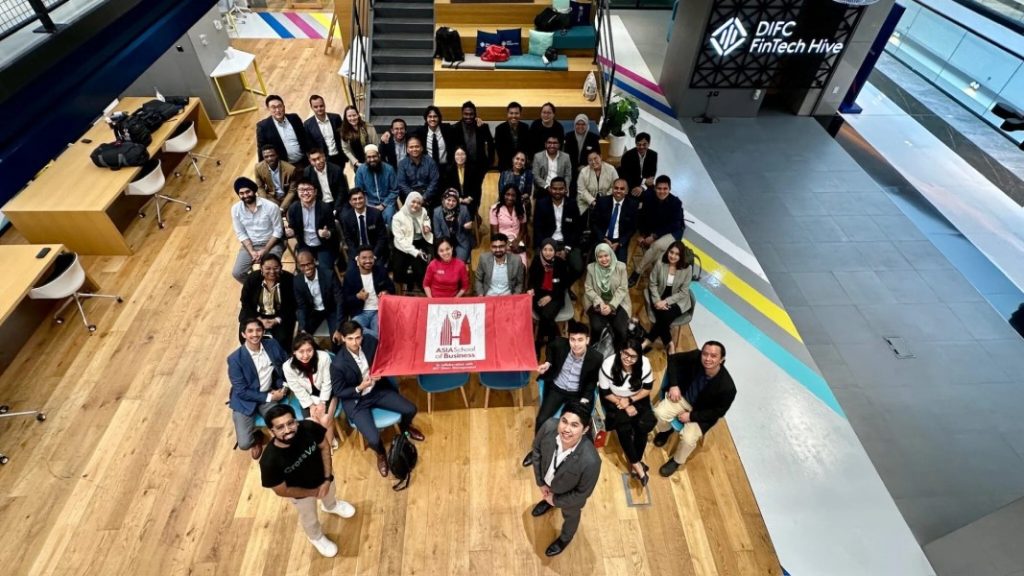
How to choose the right MBA
It was by chance that he came upon the Asia School of Business (ASB).
“I was on a holiday with a group of friends, and one of them was an American who was also applying to business schools at that time,” says Kwati. “She applied to ASB, got in (but ended up not enrolling), and told me all about the school.”
This interaction sparked Kwati’s initial interest in the school, but it was the experiential Action Learning projects found in ASB’s MBA curriculum that sealed the deal.
“Coming from a non-profit background, I wanted to open myself to the possibility of entering a corporate entity after my MBA,” says Kwati. “Therefore, I felt like the Action Learning projects would be a really good way to demonstrate understanding and ability within the for-profit space because I didn’t have experience there.”
ASB being located in Malaysia’s capital city of Kuala Lumpur was another plus point in Kwati’s books – it was an opportunity to leap into the Southeast Asia region, a place he had never explored.
And beyond that, ASB itself had an intriguing identity. The school was founded as a collaboration between MIT Sloan School of Management and Bank Negara Malaysia, the Central Bank of Malaysia. Here, both bodies collaborate on the design of the academic programme, curriculum, organisational structure, admissions, and the administration of the school.
“I’ve worked for most of my life with a government body, and I find this collaboration to be very unique with two different entities coming together with different expertise and competencies,” says Kwati. “It’s very unusual, right? So, for these reasons, I packed my bags and headed to Malaysia.”
“I came in as a blank check, and I wanted to see what I could get out of it, and I think a beautiful canvas has come out of my time here.”
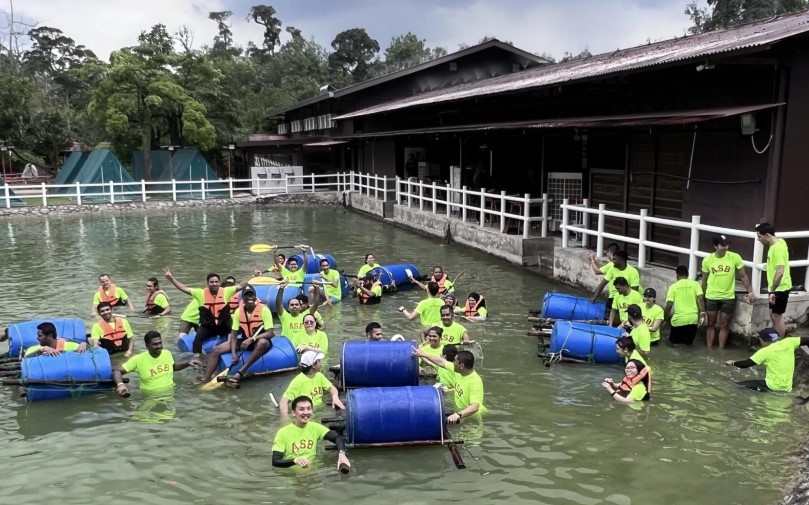
The benefits of an MBA: From student to the ‘go-to guy for financial modelling’
Kwati joined ASB’s MBA programme with minimal expectations. The only expectation he did have, however, was on networking.
“When I was applying for an MBA and talking to people around me about it, they told me that I wasn’t going to learn anything from an MBA, that MBAs were just for networking,” says Kwati.
“I joined the programme thinking I suck at networking; I’m not a people person, so the biggest thing I’m going to get out of this is a network.”
The biggest help when forming networks was staying in ASB’s multi-block residential facility, which houses up to 350 visiting and full-time students at any time.
With housing shortages and scams occurring, having access to accommodation overseen by the school is always welcomed. For Kwati, living in the same residence as his cohort has been spectacular.
“You go to one person’s room for dinner one day, and someone else’s the next, and it’s fantastic,” says Kwati. “You wouldn’t be able to get this type of experience if you were not on a residential campus. We always tell our juniors who have the opportunity to stay on campus to do it because the quality of relationships that you can build with your peers will be amazing.”
Plus, for someone who proclaims not to be a people person, Kwati ended up being the Class Co-President of his cohort too.
But the benefits of an MBA didn’t just end there.
“I think I’ve completely disproved the theory that an MBA is all about networking,” says Kwati. “Don’t get me wrong, networking is important, but I learnt a shit ton of things from the MBA.”
“I wanted to come in to learn, I didn’t want to do this whole ‘Yeah, let me just join for the networking,’ I wanted to learn about finance, I wanted to learn data analytics,” says Kwati.
“Now, I’ve become the go-to guy for financial modelling. That, to me, indicates just how much I’ve been able to capitalise on the learning opportunities in the MBA.”
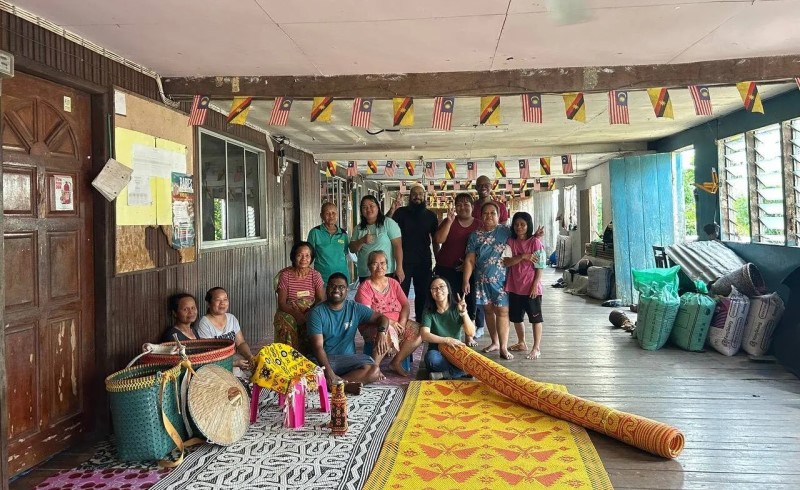
These learning opportunities are significantly heightened during the Action Learning projects.
Whether it was improving the profitability of an aerospace manufacturing company or exploring East Malaysia’s longhouses to develop a corporate social responsibility strategy, Kwati had a lot to take away from those experiences.
His project in Vietnam, in particular, was memorable for various reasons. Aside from being exposed to a new country, it was also one of the most difficult and technical projects that Kwati had taken.
The task involved pulling knowledge from areas the team lacked, such as expert-level knowledge of financial derivatives, modelling, hedging, and risk management.
“Within four to five weeks, we basically became experts in each of these areas, and then helped the client to develop a financial model and made it make sense to the board,” says Kwati. “But because the board doesn’t operate at the level of detail, we had to abstract the technical project and present it as a strategy, which was very challenging.”
“It was probably the one project where we were working 14 to 16-hour days, just because it was just so much material to get through and required so much from us, but I learned a lot.”
And while the four-week MIT Sloan immersion is a highlight for many in ASB’s MBA programme, Kwati created a different type of memory at one of the world’s most prestigious universities.
“One of my favourite sports is kayaking, and I got to kayak on the Charles River,” says Kwati. “It is by far the most unbeatable experience I’ve ever had.”
“If it wasn’t too cold during the weekend, I would head to the Charles River for a couple of hours and just sit in the kayak or paddle to the different points in the river. That was my standout experience during the immersion weeks.”
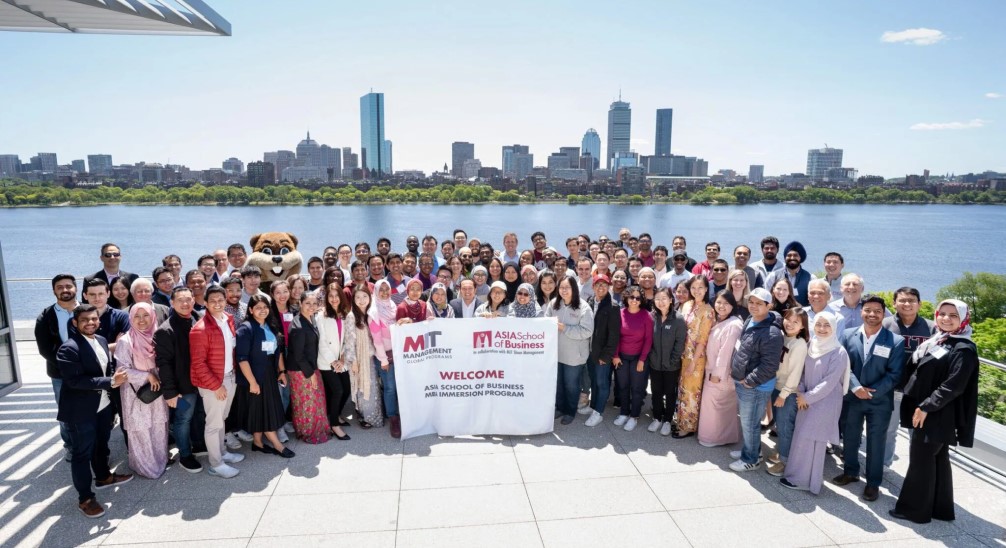
Returning full circle to doing good for the world
Coming into the MBA, Kwati’s goal revolved around equipping himself with the skills needed to become a consultant. Now, he’s certain his heart is in development.
“After reflecting, I’ve come to the realisation that what really matters to me and what’s most important is doing good with my life,” says Kwati. “Working in finance for the sake of making money doesn’t seem particularly appealing to me. Consulting is exciting work intellectually and I would be very happy doing it, but spiritually and emotionally, I wouldn’t be fully bought into it.”
For Kwati, this is coming back full circle to his earlier work in social impact – exactly what he was up to before he enrolled in the programme.
This time, though, he’ll be better equipped.
“Having an MBA has given me an understanding of how companies make decisions,” says Kwati. “It teaches you how to have a conversation with people across the aisle, understand where they’re coming from and what is important to them.”
Originally published by Study International.





